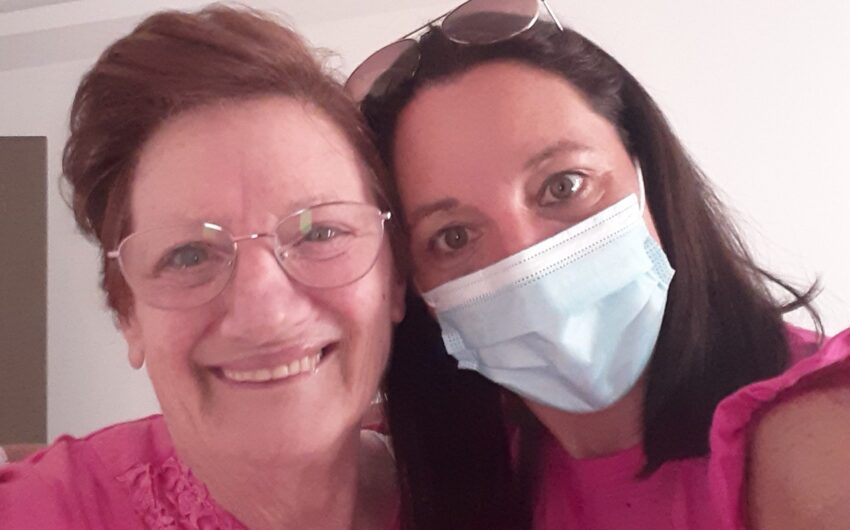
Marion Biomonte, née Spiteri, 71, of Paola, was diagnosed with dementia seven years ago. Her daughter, Gabriella Schembari, visits her every day at Casa San Paolo.
She is one of 12 residents who live with severe and varying forms of dementia in the Malita Unit, a secure area within the CareMalta elderly home in Buġibba.
When Marion started behaving differently, her husband Giuseppe, her two daughters Gabriella and Silvana and her son Marco knew there was something wrong with their mother straight away. Marion would forget to buy shopping items from the supermarket, or occasionally omit ingredients from her recipes.
Marion married Giuseppe at the age of 16. Having met as young lovers at Cordina coffee shop in Valletta, the couple moved to Italy in 1966, first to Rome, where they brought up their children, and then to Bolzano. The family moved back to Malta in 1993. Giuseppe passed away recently.
“The change in my mother happened gradually. It started off with sparse moments of forgetfulness, followed by the inability to perform basic chores and speak. It’s almost as if my mother is lost in the fog of her own mind,” says Gabriella, who is sharing her story with the hope of encouraging other families going through a similar life experience to seek early help.
“Even though the changes in my mother’s behaviour at the beginning were few and far between, I felt I had to act straight away. Staff from the dementia helpline helped us a great deal. We first accompanied my mother to a GP, then to a psychologist, after which several tests were carried out. She was diagnosed with early-onset dementia.”
From time to time, carers from the Dementia Intervention Team helped Marion with her daily needs at home, while others occasionally provided care while her husband ran important errands.
 Gabriella says it was heartbreaking to see her mother, a person full of life and energy, gradually losing her ability to carry out basic tasks, such as simply taking a bath, “but, thanks to professional care and guidance, her condition is now stable. Seeking help at an early stage is crucial.”
Gabriella says it was heartbreaking to see her mother, a person full of life and energy, gradually losing her ability to carry out basic tasks, such as simply taking a bath, “but, thanks to professional care and guidance, her condition is now stable. Seeking help at an early stage is crucial.”
When the family experienced the death of Gabriella’s sister Silvana, who passed away of cancer, Marion did not react as any mother would to the tragic news of her daughter’s loss. “For days on end, she still expected to see my sister. Subsequently, she hardly ever asked about her. It’s as if she has completely forgotten the trauma.”
About three years ago, Marion lost her ability to speak. “The pandemic did not help at all. But she reacts in her own way to what is happening around her. Especially when I visit her, she gives me that lovely broad smile, so typical of my mother, who has always been a happy soul. She truly makes my day when she communicates with me through her laughing eyes. I can tell that she is speaking a thousand words.”
